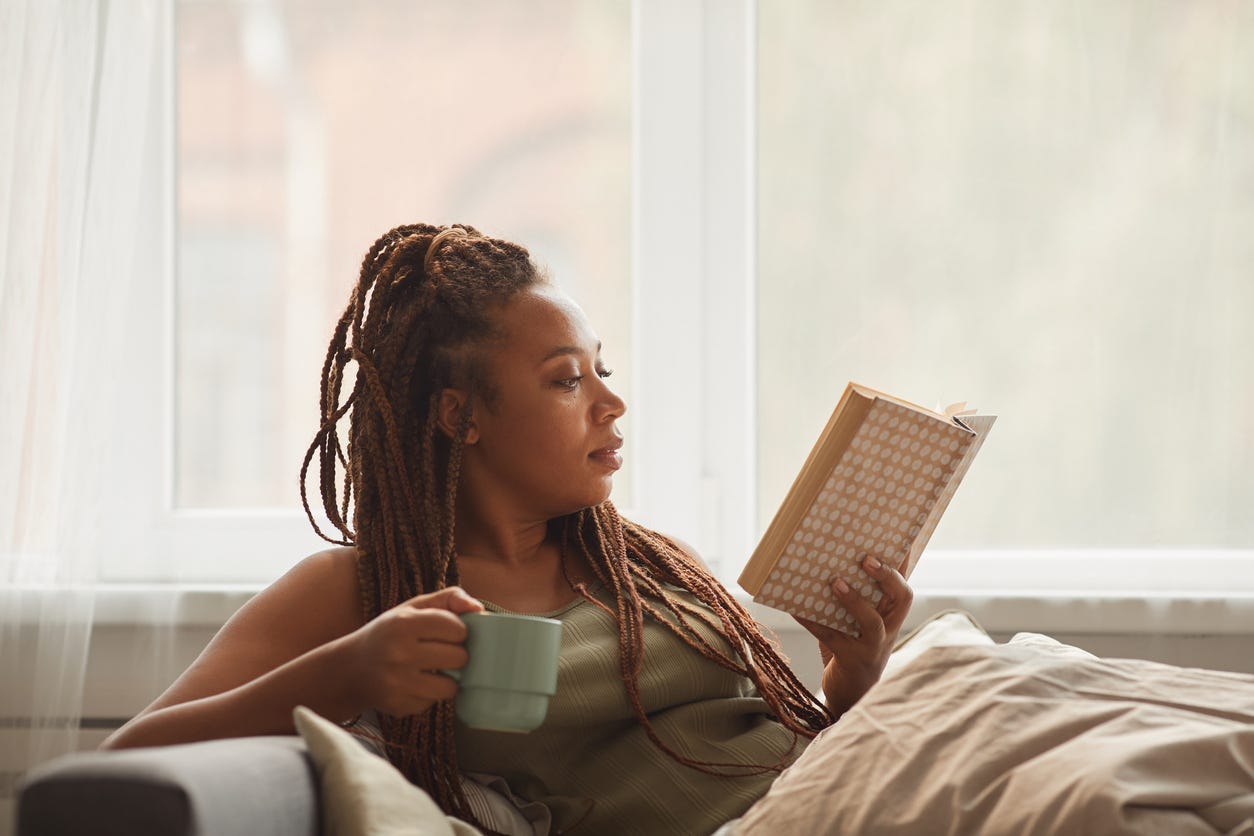Do You Want to be Alone?
A new book talks about some of the (sometimes surprising) joys of single life
As we move into the Third Age, many of us are faced with the loss of a partner, through illness, death, or divorce. Many others have been single, by choice or by life circumstances, most or all their adult lives. Whichever group you fall into, an important question is how to make the most of the path you have found yourself on.
We live in a culture that tends to view a single person with pity and/or criticism. Yet many of my clients and friends would agree with a colleague who has never been in a long-term partnership, who told me recently that they feel incredibly lucky to have reached the Third Age with this part of their lives already in order. “I wouldn’t want to have to be figuring out how to be single at this time of life,” they said.
A number of clients and friends have said that they discovered something important about themselves during the COVID 19 pandemic. As one woman put it, ““When I didn’t have a choice, I found out that I loved being alone with myself. Suddenly there was no pressure to be looking for a relationship, and I’ve started to wonder if I really don’t want to be in one. Is there something wrong with me?”
I suggested she take a look at a new book by Bella DePaulo, called Single At Heart: The Power, Freedom, and Heart-Filling Joy of Single Life.
In the book DePaulo, who has written extensively about issues related to life as a single, shares her belief that it is a “joyful, meaningful, fulfilling, psychologically rich and authentic life.” She tells us that “the single at heart are flourishing because they are single, not in spite of being single.”
Societal and familial pressure to marry or engage in a long-term intimate partnership often collide with personal fears of being alone and fears of having a life without meaning.
I was happily single for a number of years until I met my husband and lost sight of some of the joys of the single life. So many of my clients were looking for a long-term partner that I wasn’t focused on the value of an unpartnered life. But when my mom died nine months after my parents celebrated their 50th wedding anniversary, my dad, who had been both emotionally and physically dependent on her, reminded me that life alone, even after the death of a beloved partner, can still be full of joy.
As far as anyone knew, Dad had not stepped into a grocery store in his entire life. He did not know how to cook, or even how to make coffee. We weren’t sure he could find the sugar or cream to stir into a cup if someone miraculously appeared to make it for him.
Despite the expectations of his doctors, family, and friends, however, Dad thrived on his own. He quickly learned how to make coffee and to add exactly the right amount of sugar and cream. In our twice-daily phone calls, he recounted his adventures in the grocery store. “I never knew there was so much variety,” he told me one day, the thrill of discovery clear in his voice.
He learned about frozen meals, rotisserie chicken, and the wide range of ice cream available to a man with a sweet tooth. Did he make healthy choices? Well, no, but he lived another 11 years, despite the continued heart issues.
And he taught me an important lesson. I had lived alone in my twenties and loved it; and I had some clients and friends who had chosen an unpartnered life. But I, like much of society, had considered singledom to be a temporary state along the way to a relationship. My dad taught me that living alone could be rich and filled with meaning. Even a person like my dad, who had been in a long and loving relationship, can find something powerful and life-enhancing in living without a partner.
My dad was not alone in his newly discovered self. The times, DePaulo reminds us, are changing. She writes,
The march of time across the turn of the twenty-first century has been good to single people. In a study in which a different nationally representative sample of Germans was surveyed every six years from 1996 through 2014, each new group of people without romantic partners reported greater satisfaction with their lives than the one before.
I was talking about these changes with a friend who, after a long marriage and a painful divorce, has decided that she much prefers living alone. After our conversation, she sent me a link to a recent NY Times interview with Isabella Rossellini. Rossellini, famous Lancome model, actress, and daughter of Ingrid Bergman and Roberto Rossellini, shares that she did not choose to be single but gradually discovered that she enjoyed and, in fact, preferred life without a partner. Rossellini began moving into unmapped aging territory when she was “dumped by Lancome at the age of 40 for being too old.” It’s an interesting and thought-provoking interview.
Rossellini was eventually rehired by Lancome and now, at 71, writes, acts, and works her sheep farm. After the end of her last relationship, when she was in her forties, her therapist suggested she try living alone for a little while. Rossellini said, “My son was little, and Lancôme was gone. And so I said, OK, I’ll try six months. And it was a great serenity, I have to say. And so what was for me a six-month experiment to be alone became a year, two years, and then it extended to become 25 years.”
One marker of the wisdom we are gaining in the Third Age is the idea that we don’t all have to live the same life in order to find happiness, joy, meaningfulness, and satisfaction. Some of us may choose to live alone, while others may choose to be partnered. Some may choose polyamory, either from within a main partnership or, as DePaulo describes it, as a single person. Some may make actively search for a partner, while others take a “wait and see” approach. Some, like my client, may realize that they enjoy being alone and don’t want a partner, despite social and familial pressure. And others might simply “fall into it,” like Rossellini and my dad.
One of the liberating aspects of the Third Age is the knowledge that the choice, in the end, is ours. We do not have to answer to parents, a social paradigm, or even friends or children. We are free to find and appreciate what feels most connected to our own authentic self. If you’re considering single life, either by choice or by life circumstances, take a look at Single At Heart. It’s an uplifting celebration of a choice many of us did not feel free to make when we were younger.
Photo: fly fishing iStock photo ID:827888510
Photog: jag_cz
Photo: woman reading iStock photo ID:1265420437
Photog: AnnaStills






I’m happier with my 23 year old wife than my 40 year old wife. Of course she’s dead. Sorry you idiots
Of course you can keep choosing the better option. That’s the best way to ruin all relationships and basically humanity. You idiots